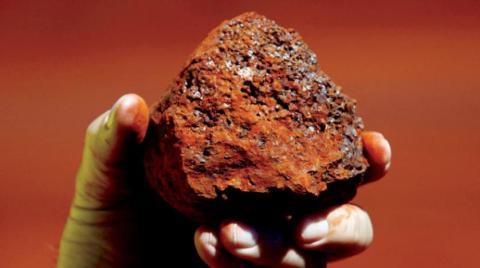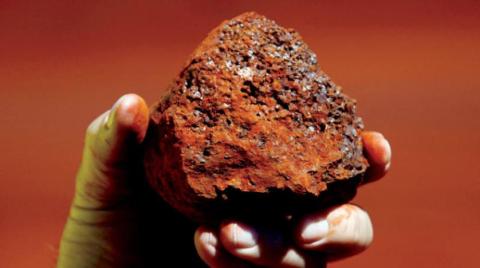
It’s that time again. The summer season, when the heat gets to people’s brains and silliness sets in. There has just been a G7 summit in Biarritz (nice place, Edward VII used to play baccarat there), and everyone is grandstanding again. On the first day, French President Emmanuel Macron arranged at short notice a pop-up lunch with US President Donald Trump, apparently so he could try to persuade him (among other things) to change US policy on Iran and (by all accounts) restart direct contact on the basis of some not very new ideas. He then surprised everyone by producing Iranian Foreign Minister Mohammed Javad Zarif, like a rabbit out of a top hat. The gasps of surprise were sadly muted. Zarif tweeted something about Iran’s constructive diplomacy (no irony intended, I’m sure). The US gave the affair a brusque brush-off.
In real life, the Iranians and their friends seem increasingly exercised by the mysterious (or maybe not) airstrikes against military targets associated with some Al-Hashd Al-Shaabi militias inside Iraq, and continuing Israeli attacks against similar sites in Syria. The most recent have included an attack on a military base on the southern outskirts of Baghdad, which clearly hit a massive munitions store (actually belonging, so a former Iraqi deputy prime minister suggested on Twitter, to Iran), strikes on Saturday against targets on the outskirts of Damascus, and now another this Sunday on a base associated with Kata’ib Hezbollah near Al-Qaim on the border with Syria, where there was a similar attack only a few months ago. There have also been drone sightings over Beirut and an attack on a Popular Front for the Liberation of Palestine base in the Beqa’a Valley. It’s becoming a pattern.
A few days ago, our old friend Abu Mahdi Al-Muhandis (still wanted in Kuwait on terror charges from the 1980s) threatened to shoot down US drones in retaliation. From Qom, Ayatollah Kazim Al-Ha’eri, who is close to Muqtada Al-Sadr, came out with a particularly emotional effusion, talking about his pride in the Hashd, who stood tall against Daesh, the US and Israel when others faltered. They would continue to fulfill their sacred duty by punishing the enemy, whoever he was and wherever he was found. Meanwhile, Ali Shamkhani, the Secretary General of the Supreme National Security Council, told NBC last week that, in the event of hostilities with the US, Iran will fight through proxies (which must come as a bit of a surprise to all those people who deny Iran has any). And, just to add to the general gaiety, Kata’ib Hezbollah’s secretary general was in Tehran the other day telling the world that he and his colleagues in the Hashd regard Ayatollah Ali Khamenei as continuing the tradition of prophetic governance. That must be news to all those people — almost certainly including many Iranians — who thought the Iranian government was oppressive and corrupt. Oh well.
Not to be left out, Adel Abdul-Mahdi, the Iraqi prime minister, has proudly announced that any unauthorized intruder into Iraqi airspace will now be regarded as hostile. That includes US aircraft. But, since whoever is attacking the Hashd sites — which also seem for some unaccountable reason to be very attractive to members of the Islamic Revolutionary Guard Corps — clearly doesn’t care about authorization and finds little difficulty in entering or leaving Iraqi airspace, it’s not clear what this means in practice. That’s probably why Al-Sadr has decided to call for a rational consideration of the evidence and a careful focus on Iraqi security; not the interests of neighboring states (an implied rebuke to those Iranians and their Iraqi sympathizers who claim that the defense of Baghdad is the defense of Tehran).
And, while all this is going on, the Iranian tanker briefly detained in Gibraltar makes its faltering way through the Mediterranean, looking for a friendly port. The Iranians, having detained a British-flagged tanker in retaliation, seem at a loss to know what to do next in the face of a more resolute US and UK position on the escorting of their flagged vessels. Zarif has been touring regional capitals as well as Paris to explore the possibility of getting others to do Tehran’s dirty work. The Houthis — who are always happy to help — have fired more missiles at sites within Saudi Arabia in sympathy. But none of this really alters the equation. Iran’s oil exports have been severely hit by the reimposition of US sanctions. Contrary to the expectations of some observers, these sanctions have had a significant impact on the behavior of other states. After all, trade with the US is far more valuable than trade with Iran (even if you can get paid). And the Permian Basin is the gift that keeps giving. No one has taken the Iranian bait so far and started a firefight. And, unless Iran makes a serious move to de-escalate, or decides to escalate massively instead, it looks likely that the economy will continue to be suffocated.
It is true that Iran still has options. It can accelerate its return to uranium enrichment. It can revert to putting its economy on a war footing, something the supreme leader frequently recommends from his position of privilege. It can smuggle. It can ratchet up the tension (and maritime insurance rates) in the Strait of Hormuz. It can engineer damaging violence in Yemen, Syria, Lebanon and Gaza, perhaps even a renewed conflict involving Israel and the Palestinians, whom Iran is as prepared to instrumentalize as Hamas is to let it do so. But none of these are great choices, especially if your enemies (as you see them) are refusing to respond in the way you would like. And the surprising thing is that the US has so far responded in such a measured way. Not really what you would expect.
Zarif has been touring regional capitals as well as Paris to explore the possibility of getting others to do Tehran’s dirty work.
Sir John Jenkins
Where does this end? Well, as I have said before, while many commentators claim to believe it is all about the US, in reality it depends far more on Iran. After all, the fundamental problem is not US behavior or the unpredictability of Trump. It is true that the invasion of Iraq was a blunder, as was the subsequent abandonment of Iraqi politics to Nouri Al-Maliki and other sectarian opportunists. And there has been an alarming incoherence about US and Western policy more broadly since 2011, which really needs to be remedied if we are at all serious about the region and its stability.
But most of this happened under previous presidents. It benefited Iran. And yet Tehran, while posing as the injured party, continues to meddle and extend its influence in ways that exacerbate the chronic underlying problems of the region. Everyone could make a major contribution to a solution by bringing the conflict in Yemen to an end. It only serves Iranian interests to have it continue — probably one reason why Khamenei recently received a high-level Houthi delegation for the first time. No doubt we — the US, UK, France and the Gulf states — should all act more collectively. But, beyond that, all Iran has to do is accept that its security cannot and should not be bought at the expense of its neighbors and act accordingly. This is not a question of setting up a security coordination mechanism, it is about agreeing on the nature of the threat. And there, for too many people, the answer remains: Iran.












